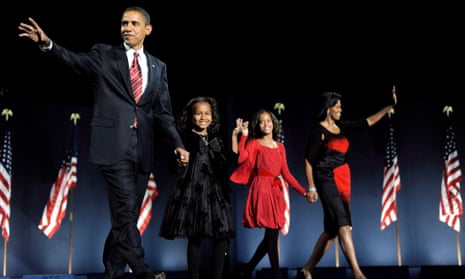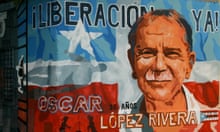From an Illinois state senator to a failed campaign for the House of Representatives, to a successful campaign to become a senator, to running and being elected the first African-American president of the United States, one word has come to characterise Barack Obama: hope. Along with one phrase: “Yes we can.”
So the question is, did hope materialise, and did “Yes we can” become “Yes we did”, especially with respect to race relations?
Barack Hussein Obama was, by birth, residence and experience, uniquely situated to understand and reconcile the races. He was born to a white Kansas mother and a black Kenyan father. He was raised and loved by white grandparents who nonetheless exposed him to their own negative racial stereotypes. He lived in the mostly white state of Kansas, then for a time in the mostly Muslim country of Indonesia, and finally in the mainly Asian but also the most racially diverse state in the US, Hawaii.
As a young man he had to engineer his way through all these racial and cultural diversities. He mastered what is generally known as the Hegelian dialectic – rejecting two opposites in an attempt to seek a middle ground that reconciled both.
Such a view was revealed during the 2008 presidential campaign, when Obama had to deal with Rev Jeremiah Wright. His former pastor’s remarks on race threatened to derail the campaign, and he said that they “weren’t simply a religious leader’s efforts to speak out against perceived injustice. Instead, they expressed a profoundly distorted view of this country – a view that sees white racism as endemic, and that elevates what is wrong with America above all that we know is right with America” – his effort to balance and reconcile two truths about America.
Obama believed politics could be conducted on a high moral plane, with dignity, rational discourse on ideological differences, and bipartisanship. He soon learned that 15 Republican leaders had conspired in a Washington DC restaurant on his inaugural night to undermine his administration by opposing everything he supported – even Republican ideas. Senate majority leader Mitch McConnell said his priority was making Obama a one-term president – not jobs, education, healthcare or housing. During a state of the union address, South Carolina Republican congressman Joe Wilson called out “You lie!” in the middle of his speech – then raised over $1m for his campaign on the back of it. Welcome, Barack, to US racism.
Obama also soon learned that the first black president had to govern on eggshells when he referred to his friend Prof Henry Louis Gates’s arrest for trying to enter his own home as “stupid” . That resulted in a “beer summit” between the president, Gates and the arresting officer.
When teenager Trayvon Martin was shot dead by a volunteer vigilante in Florida, the president said if he had a son, “he would look like Trayvon”. Many white Americans reacted negatively, implying that Obama was siding with Trayvon Martin and against the shooter, George Zimmerman.
Some black people criticised him for not doing more in directly addressing black political conditions and concerns. For some, in some areas, conditions actually worsened. But Obama consistently stated he had been elected president of all Americans, not just black Americans. With that premise, he tried to improve the conditions of all under the affordable care act – believing correctly that many African Americans’ lives would benefit from it.
The LGBTQ community made tremendous progress under Obama, including a supreme court decision that legalised same-sex marriage. Hispanics, too, progressed with the deferred action for childhood arrivals law that granted 800,000 children brought to the US by parents at a young age two years’ delay in deportation, and the right to work. The Dream Act, a bill that set out a process for immigrants to gain permanent residency, didn’t pass; nor did they get their highest priority: comprehensive immigration legislation.
But this is complicated. African Americans got nothing comparable to LGBTQ and Hispanic communities in terms of legislation addressing their concerns. But both of them marched, protested and pressured the Obama administration. For a variety of reasons, black people mostly didn’t protest against Obama, and the consequences were we didn’t get anything specific.
But just having a scandal-free African American family in the White House, who conducted themselves and fulfilled their responsibilities with competence, dignity and grace, shouldn’t be underestimated. The clouds of racial limits were permanently removed from the minds of black people, especially the young, and expanded white minds as well.
I believe history will judge Barack Obama to be a very good president who, in the long run, did improve race relations.








